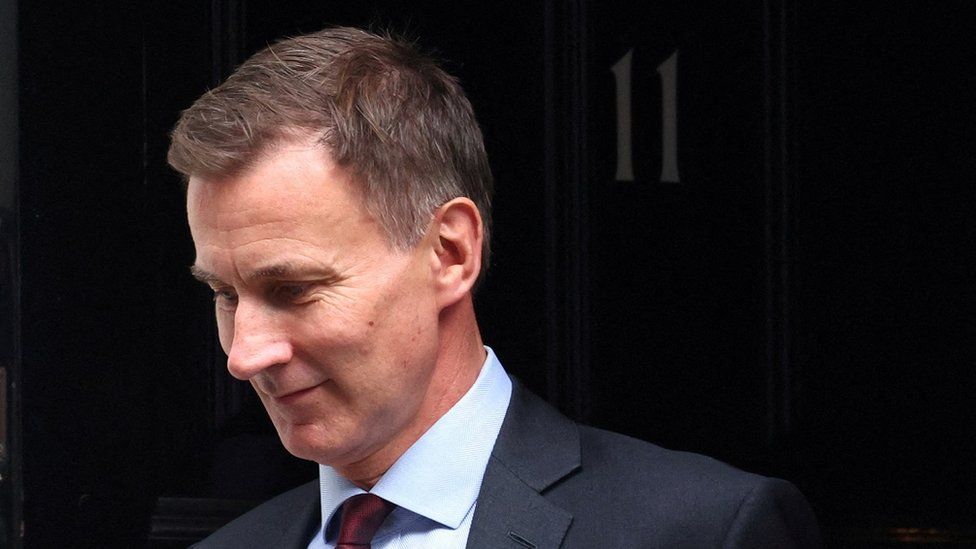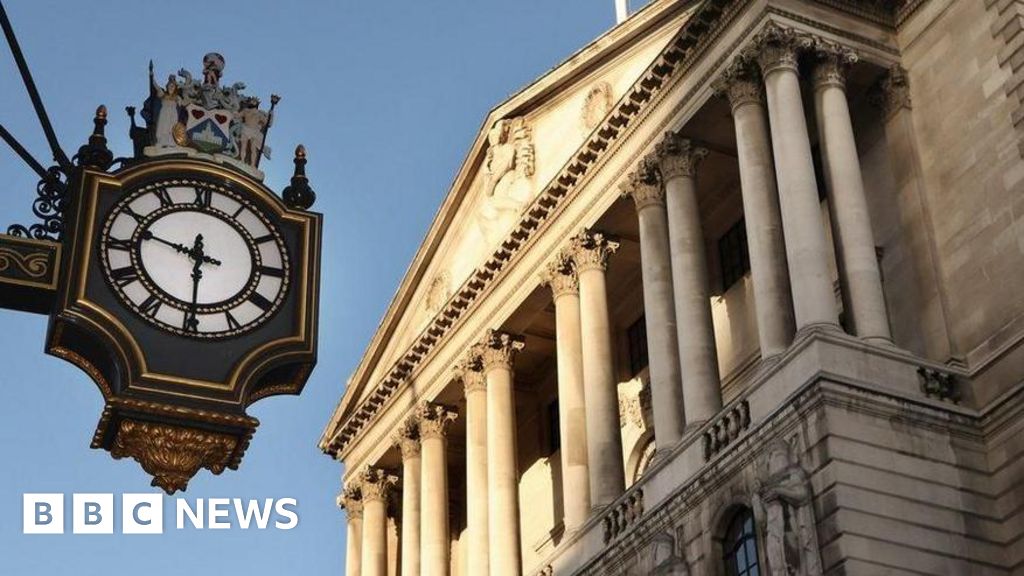ARTICLE AD BOX
 Image source, Reuters
Image source, Reuters
The chancellor is considering cutting inheritance and business taxes at next week's Autumn Statement, the BBC has been told.
Jeremy Hunt could make such moves, as first reported by the Financial Times, depending on the latest predictions from the UK's main economic forecaster.
A Treasury source said no final decisions had been made, with Mr Hunt to consider such policies this weekend.
They added it is possible such tax cuts could be delayed until the spring.
Mr Hunt has previously said tax cuts are "virtually impossible" and instead warned of "frankly very difficult decisions" at next week's Autumn Statement, which is when he will outline the government's latest tax and spending decisions.
The chancellor is expected to receive the UK's latest economic forecast from the Office of Budget Responsibility (OBR) - a body which assesses the health of the UK's finances and is independent of the government - on Friday.
Despite playing down expectations of tax cuts, economists have estimated the chancellor could have more than £10bn available to spend on measures such as tax cuts.
But the amount of cash the government says it has available to spend is measured against its own, self-imposed spending and taxation - or fiscal - rules. Whether and how the government meets its rules, depends on its policy choices.
Most governments of wealthy countries follow fiscal rules in an attempt to maintain credibility with financial markets, which help to fund their plans.
Inheritance tax in the UK is a tax on the estate - the property, money and possessions - of someone who has died, but it applies to only around 4% of estates.
No tax is paid if the estate is valued at less than £325,000, or if anything above this threshold is left to a husband or wife, civil partner, charity, or a community amateur sports club.
But if a home is part of the estate and a person's children and grandchildren stand to inherit it, then the threshold can go up to £500,000.
The tax sparks considerable debate, partly owing to the fact many people are concerned about the tax and find it difficult to understand.
It is not clear what business taxes the chancellor might cut, but there are expectations that a tax break which allows firms to offset 100% of the money they spend on new machinery and equipment against their profits, will be extended or possibly be made permanent.
This policy - known as "full expensing" - is due to expire at the end of the 2025 tax year.

 1 year ago
29
1 year ago
29








 English (US) ·
English (US) ·